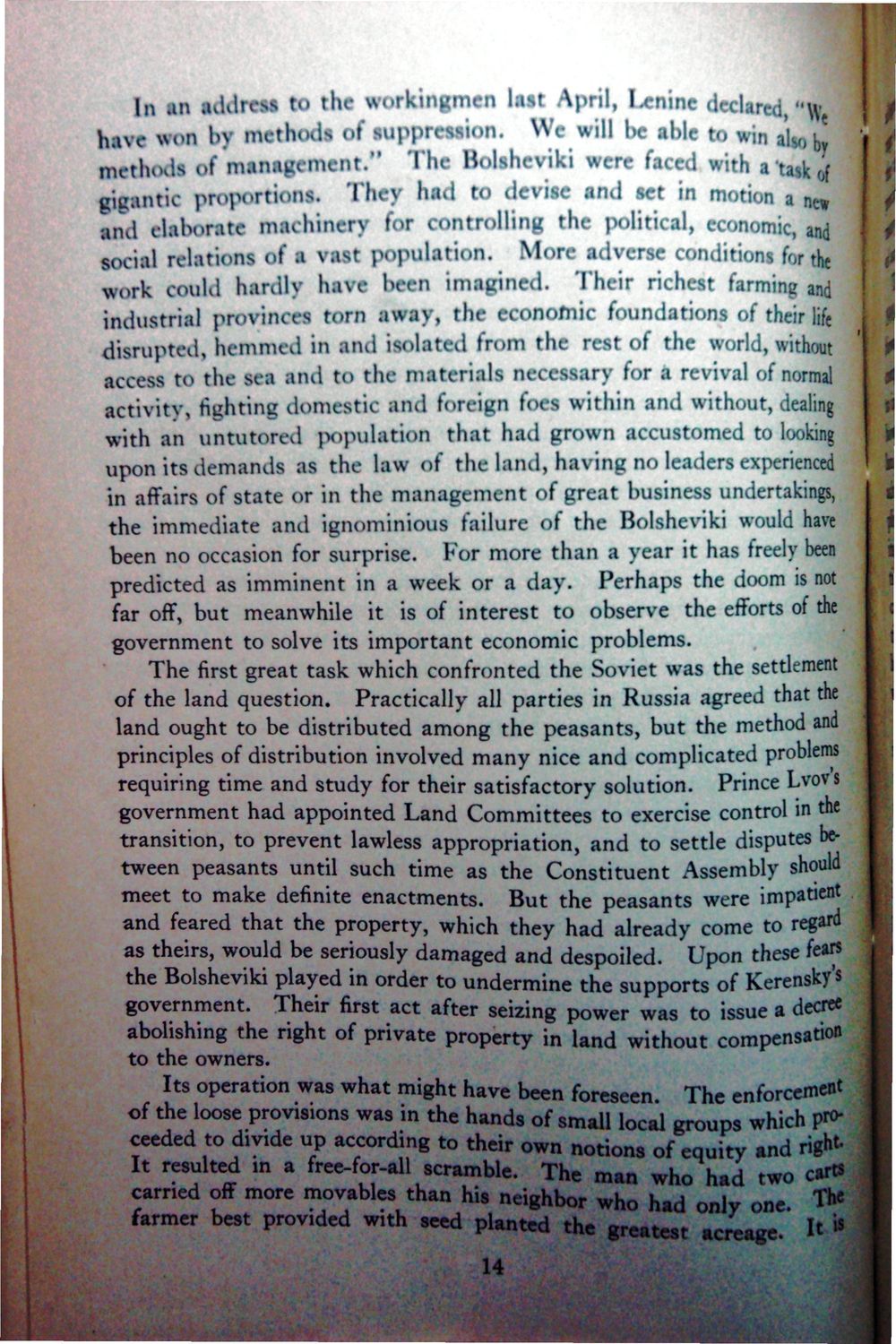| |
| |
Caption: War Publications - WWI Compilation 1923 - Article 22
This is a reduced-resolution page image for fast online browsing.

EXTRACTED TEXT FROM PAGE:
In an aiUlrett to the workingmen last April, U n i n c declared, "\y have mm b j methods of aupprettion. We will be able to win alio u methods of management." T h e Holsheviki were faced with a 'task 0f gigantic proportion* T h e y had to devise and set in motion a net and elaborate machinery for controlling the political, economic, and social relations of a vast population. More adverse conditions for the work couKl hardly have been imagined. Their richest farming and industrial provinces torn away, the economic foundations of their life disrupted, hemmed in and isolated from the rest of the world, with out access to the sea ami to the materials necessary for a revival of normal activity hunting domestic and foreign foes within and without, dealing with an untutored population that had grown accustomed to looking upon its demands as the law of the land, having no leaders experienced in affairs of state or in the management of great business undertakings, the immediate and ignominious failure of the Holsheviki would have been no occasion for surprise. For more than a year it has freely been predicted as imminent in a week or a day. Perhaps the doom is not far off, but meanwhile it is of interest to observe the efforts of the government to solve its important economic problems. The first great task which confronted the Soviet was the settlement of the land question. Practically all parties in Russia agreed that the land ought to be distributed among the peasants, but the method and principles of distribution involved many nice and complicated problems requiring time and study for their satisfactory solution. Prince Lvovs government had appointed Land Committees to exercise control in the transition, to prevent lawless appropriation, and to settle disputes between peasants until such time as the Constituent Assembly should meet to make definite enactments. But the peasants were impatient and feared that the property, which they had already come to regard as theirs, would be seriously damaged and despoiled. Upon these feats the Bolsheviki played in order to undermine the supports of Kerensky's government. Their first act after seizing power was to issue a decree abolishing the right of private property in land without compensation to the owners. Its operation was what might have been foreseen. The enforcement of the loose p r o t o n s was in the hands of small local groups which proceeded to divide up according to their own notions of equity and right It resulted in a free-for-all scramble. The man who had two carts c carried off more movables than his neighbor who had only one. T» is farmer best provided with seed planted the greatest acreage. It 14
| |